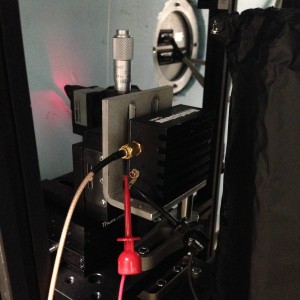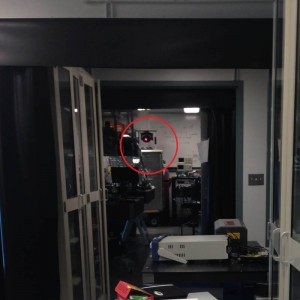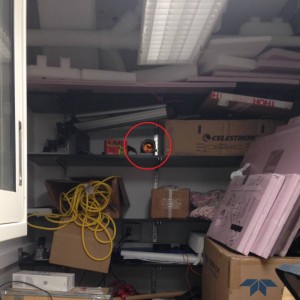
On the surface, the products of engineering seem incredible. You can make iPhones, self-driving cars, and robots that swim inside your bloodstream. But what makes engineering incredible is also what makes it hard. You’re manipulating the very rules of nature to work in your favor, and nature doesn’t always want to do what you tell it to.
Still, sometimes the magic of the end product conceals the hours of drudgery in the lab. I used to think of it almost as a given: You spend long hours in the lab, and with enough time, something always pops out from the other end.
Unfortunately, that idea doesn’t take into account the endless frustrations of engineering. They’re a very real and very unavoidable part of lab research. With a week to go before my thesis deadline, everyday problems in the lab have become even more agonizing. Here are a few quotes I picked up in lab that sum up what’s going on this week.
- “I used to work in a physics lab. So there wasn’t as much engineering, where we had to worry about making everything work.”
I expressed frustration about my thesis to one of our graduate students, who’s working on a different project. I told her how difficult it was to combine the imaging system I had built with the existing methane sensor. “I can really sympathize with that,” she said. “It’s been really hard for me.” Often, the difficulty is that the plan looks perfect in your head, but when you hook everything up, it simply doesn’t work and you have to find out why. And often, the problem is something silly: there’s a wire disconnected, the power is disconnected, or the worst—it only works sometimes. You just have to keep trying and find when it does.
- “Yeah, there’s no magic behind it. This is when you realize that there’s a lot of serendipity involved in research.”

Our task for this week: align the return beam of a laser to a detector less than 1/100 the width of a strand of hair. No matter how you look at it, the challenge is gargantuan. A second year graduate student joined me in trying to tackle it—I spent some 8 hours twiddling with no luck. We asked a senior graduate student for help, since she had done it before. “You just keep trying,” she replied, “and eventually, you get lucky.”

- “At least we saw a signal within a week. Our postdoc didn’t see a signal for one-and-a-half years.”
After my 8-hour struggle, my fellow researcher found a clue—the return beam wasn’t traveling in a straight line. So, while moving the detector back and forth, we needed to tilt and rotate it too. Finally (nearly one week after we had started!) we had a signal. But, as I was reminded by the above quote, one week is not the longest amount of time it has taken someone to find a signal. Persistence is key in the lab.
- “Maybe I should leave this for some summer intern to do.”
Yes, that was me.
After we had aligned the detector, everything seemed like it was going well. That was until I tried testing the imaging system I had installed with the sensor. Despite the fact I had gotten it to work before aligning the detector, that was no longer the case. Defeated, I went to my teammate for help. She had a litany of suggestions—so many, in fact, I started to become overwhelmed, and I wanted to scream, “I HAVE A THESIS DUE IN A WEEK AND A DRAFT DUE IN THREE DAYS.” How could I have time for this? I know she understood what I was going through. She just wanted what was best for me: good results to put in my thesis. I calmed down. Even though I’m stressed out about thesis-writing, I won’t actually have a summer intern do the dirty work I should be doing on the system!
If this week was any indication, the next week (the last one before my thesis is due!) will be a long one for sure. So I’ll see you on the other side of my thesis deadline!
–Stacey Huang, Engineering Correspondent

